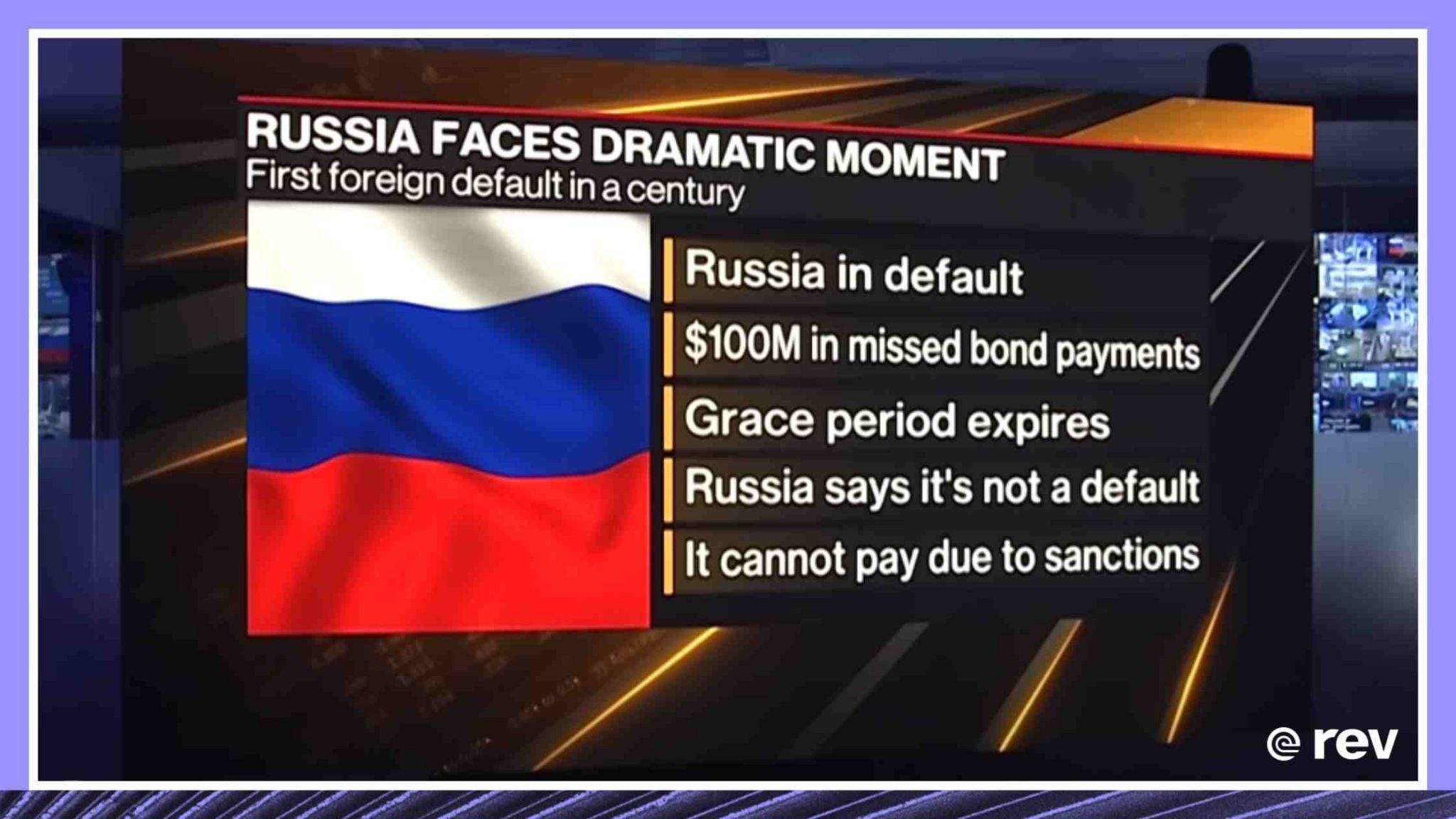Jun 27, 2022
Russia Defaults on Foreign Debt for First Time in a Century Transcript

Russia has defaulted on its foreign-currency sovereign debt for the first time since 1918 with the grace periods on two euro bond coupons expiring. Read the transcript here.
Transcribe Your Own Content
Try Rev and save time transcribing, captioning, and subtitling.
Shery Ahn: (00:00)
So I know that this is a largely symbolic development, but this would really be still the first time since the repudiation of Czarist era debts, more than a century ago, tell us what’s happening.
Su Keenan: (00:11)
Yeah. It’s a big deal historically, and legally it is also highly unique because Russia is saying it has enough money to pay on the debt. But because of the increasingly harsh sanctions imposed by Western nations, it’s unable to actually do so. And that’s why we have the Russian finance minister calling this a farce, saying whatever label you want to put on it, you can put on it. But he said, “Anyone who understands the situation knows that this is in no way a default.” Again, that’s a quote from the Russia’s finance minister.
Su Keenan: (00:47)
And however you view this situation, it is indeed a grim milestone in the country’s rapid transformation into an economic, financial, and political outcast.
Su Keenan: (00:58)
The nation’s Euro bonds, as Shery mentioned, have traded at distress levels since the start of March. The centralized bank’s foreign reserve remain frozen. The biggest banks have cut it off from the global financial system. And so it’s in a very odd situation, literally, unable to pay. At issue is about 100 million on missed interest payments that were due May 7th. The grace period on that has now expired.
Shery Ahn: (01:25)
So Su, usually you will have the ratings agencies telling us if a country has defaulted, but they’re not allowed to do business with Russia. So what’s next?
Su Keenan: (01:34)
Yeah. Again, it’s extremely unique, especially legally and financially. So Russia claims it has enough funds, can’t make the payments. And to quote one senior sovereign analyst at Loomis, Sayles & Company, he says, “You have to understand, it is very, very, very, very rare, when a government that otherwise has the means, is forced into default by an external government.” That’s the equivalent of what we’re seeing here. He also says it’s going to be one of the big watershed defaults in history. I mean, it really is a historic moment.
Su Keenan: (02:09)
Now, as Shery mentioned, a formal declaration would usually come from the ratings firms, but the EU sanctions led them to withdrawing any ratings on Russian entities. So the bond holders themselves can take action, but it’s believed at this point they will wait and see. The default situation, the status, lasts for three years, so they’ve got time to sit back and watch this war unfold. And it’s other… Russia’s other economic performance as well. So as mentioned, the default largely symbolic at this point, but certainly a major historic moment.
Transcribe Your Own Content
Try Rev and save time transcribing, captioning, and subtitling.






